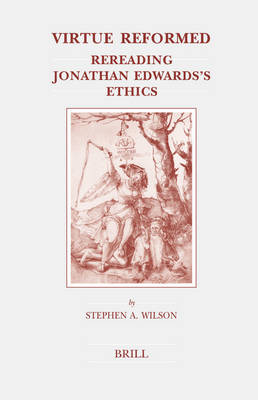Brill's Studies in Intellectual History
1 primary work
Book 132
Much of the previous fifty years of scholarship on Jonathan Edwards (1703-1758) has circumscribed his ethical thought either within narrow interpretations of Calvinist theology or the philosophy of the "moral sense." The mutually exclusive nature of each perspective has distorted the importance Edwards granted human abilities in the salvation process and the demanding moral standards he thought were uniquely defining of Christians. Building on new interest in Protestant scholasticism, Puritan "precisionism," and virtue ethics, Virtue Reformed recalibrates the scholarly stalemate with a comprehensive rereading of both major published treatises and lesser-known discourses. The result is a fresh portrait of a fascinating eighteenth-century figure's struggle to be both a forwarder of the Reformation and a participant in the Enlightenment.
